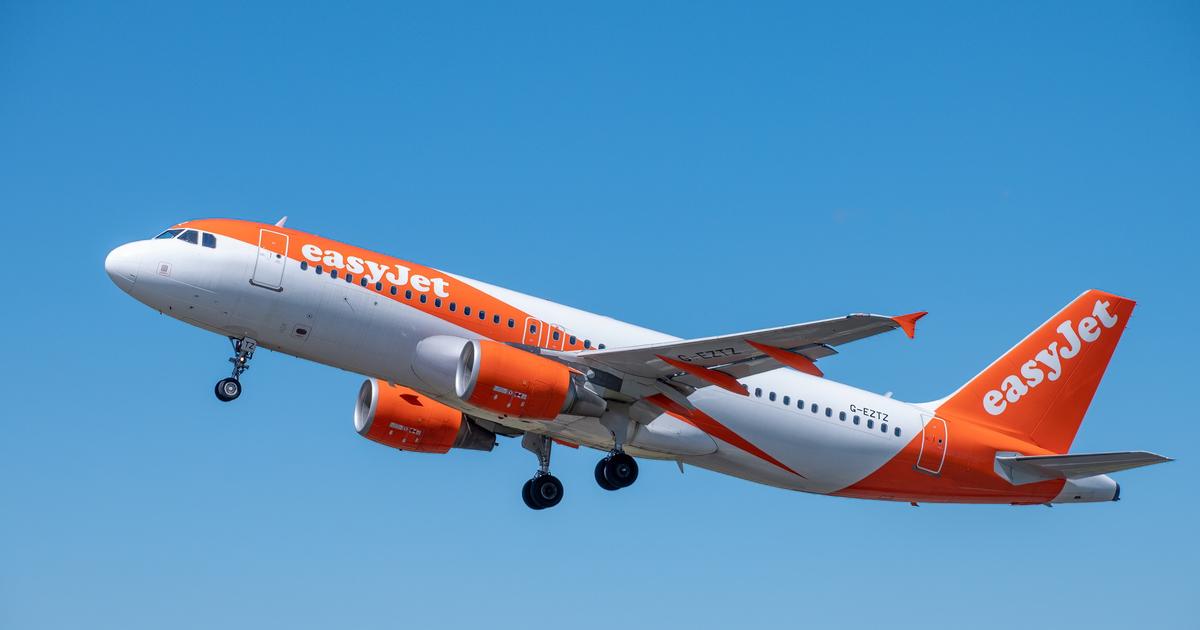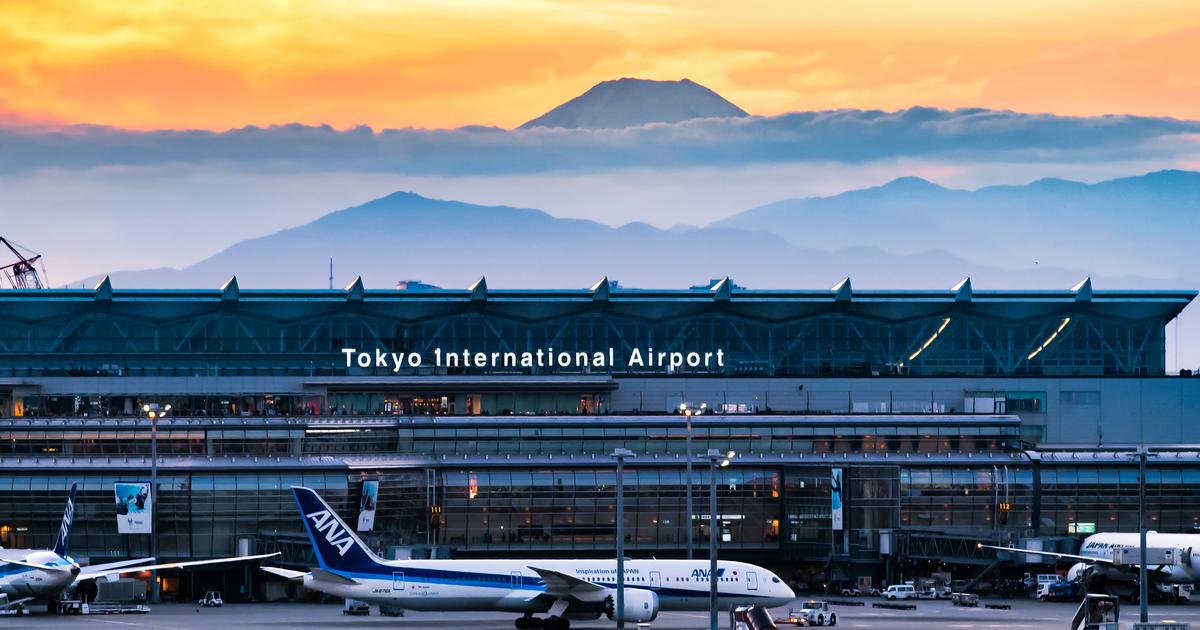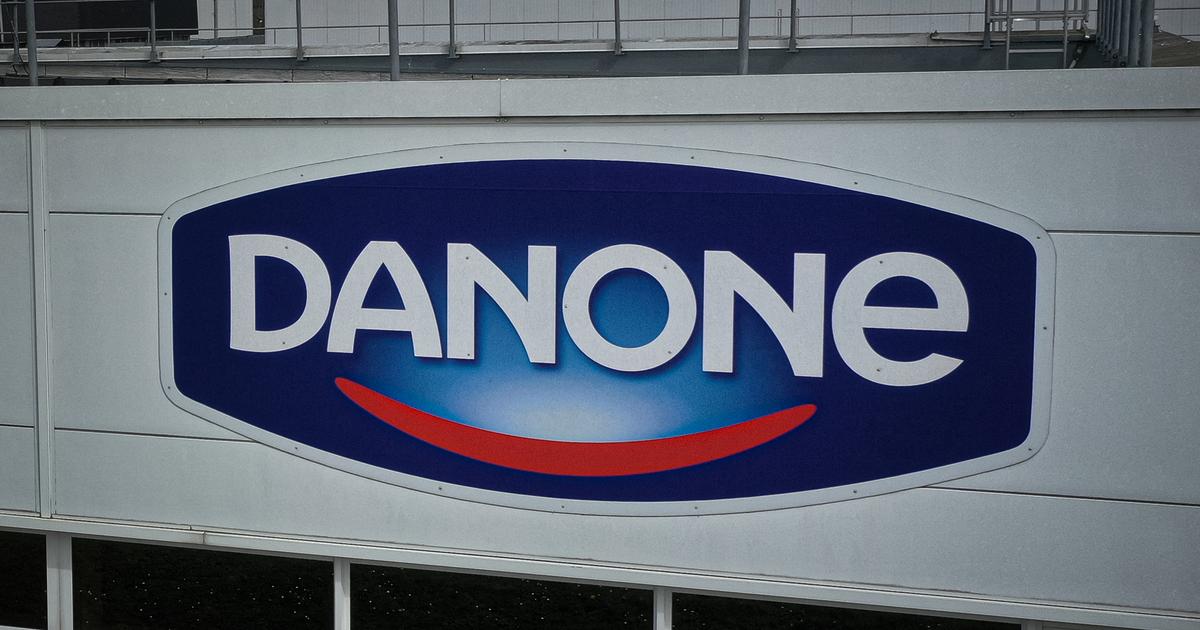Enlarge image
Hand luggage control at Tegel Airport
Photo:
Jens Kalaene / dpa
Anyone who flies on vacation has to go through three hells beforehand.
They are called check-in, security control and boarding at the gate.
Amélie Charisius knows two of them.
She is head of the largest service provider at German airports, AHS Aviation Handling Services.
Your people check in passengers, print boarding passes, manage boarding and try to find lost suitcases.
It is a job with little glamor and a lot of potential for frustration.
Lufthansa and Co. have long since outsourced them in many places.
"We take care of the passengers on the ground, many airlines then only take them on board themselves," says Charisius.
The woman is used to trouble, but what is now rolling out to her people in the post-Omicron travel boom could make her nervous too.
After two years of travel slack, the extremely short-term increase in air traffic will be very challenging for everyone involved, she warns.
As early as Easter, the manager believes, masses of people will pour into the airports;
and in the summer holidays, when the big federal states start their summer holidays, some queues will be unavoidable in the terminals between Bremen and Munich.
So far, the war in Ukraine has hardly diminished the Germans' desire to travel.
Even though Lufthansa has recently registered a slight reluctance to book as a result of the conflict, there is no doubt in the industry that demand will be high.
"People want to travel again," says Lufthansa boss Carsten Spohr.
And he is already predicting that there could be massive bottlenecks in passenger handling during peak travel times, for example at Frankfurt Airport.
In fact, tour operators are reporting stronger demand than before the crisis.
Lufthansa wants to use the jumbo Boeing 747 as early as Easter to bring the masses of holidaymakers to Mallorca.
The airline even intends to stop the job cuts that have already been decided;
business is just too good.
But while the airlines are bringing their mothballed machines out of hibernation and activating their staff, the airports are finding it difficult to restart operations that have been almost paralyzed.
A number of employees have looked for new jobs – and the operators are not so quick to get hold of others, especially qualified ones.
Many jobs at airports are considered unattractive because they are poorly paid, monotonous and exhausting.
There are hardly any applicants, especially for baggage tracing.
Even before Corona, everything was sewn to the brim
In addition, jobs at the airport are security-related.
All AHS employees require a background check.
If you have moved several times, you may have to wait four months for the authorities to give you the go-ahead.
The fact that the airlines do not yet know exactly where the flow of holidaymakers is going and reserve the right to adjust flight schedules at short notice does not make the problem any smaller.
Even before Corona, everything was sewn to the edge there.
The merciless price war among the airlines no longer leaves any buffers.
Charisius still remembers her time as a "ground stewardess" at Düsseldorf Airport.
20 years ago.
"Back then there was more idle time, and the airlines planned longer downtimes." Today, some airlines try to take off again with new passengers just 25 minutes after arrival.
The airlines pay AHS between 200 and 1,000 euros per check-in, depending on whether they have booked individual services or a complete package.
For example, some airlines do not want their names to be called if a passenger is about to miss their flight.
Then you just have to buy a new ticket.
The ground staff is also responsible for complying with the hand luggage regulations.
Sometimes there is even a bonus if you ensure that travelers check in their suitcases that are too large or heavy - and pay more.
The time pressure is enormous.
Those who work under the wing suffer the most.
When the Lufthansa plane from Nice rolls into the gate of Frankfurt Airport in the drizzle, the four men in their thick neon yellow suits are already waiting.
They have pulled on their hoods and pulled cloth masks over their faces against the winter cold and the kerosene fumes.
It has to be done quickly: someone directs the Airbus to the exact parking position.
Two men put chocks under the wheels as soon as the engines are switched off, the fourth rolls up the empty luggage trolleys and the luggage conveyor belt.
One of the four has to go into the front hole.
Holes - that's what the workers call the two loading hatches.
The front one is packed with up to 90 pieces of luggage and is only 1.24 meters high.
This means that you can only crouch or kneel there to heave the 20 to 28 kilogram suitcases and bags onto the conveyor belt.
In winter, the hole can sometimes drop below zero if a machine has been at high altitude for a long time.
In summer the concrete glows with more than 50 degrees.
A backbreaking job, not exactly generously rewarded.
"At Fraground, newcomers might get to 1700 or 1800 euros net per month," says Hakan Bölükmese, chairman of the works council of the subsidiary of the Frankfurt airport operator Fraport.
»You also have to work at night during off-peak times, and vacations are usually not possible during the main travel season.«
Bölükmese, 45, shaven head, beard, muscular upper body, worked on the runway himself for 17 years.
"When you move luggage, you always have to keep your back straight and have good technique," he says.
"Otherwise you'll break down here very quickly." Fraport and its Fraground employed around 14,000 people before the pandemic began at Frankfurt Airport.
Today there are about 3000 fewer.
"Our staffing is shrinking," says Bölükmese.
Many have taken early retirement, also because of a volunteer program.
Others have hired parcel services or Deutsche Bahn.
"Now Fraground is again aggressively recruiting staff, but there aren't many qualified applicants," says the works council.
»This then leads to increased operational disruptions.
The manpower is missing.«
Staff shortage also at the security check
The shortage of staff is also evident in baggage handling: at the end of the conveyor belts, over which the suitcases and bags of checked-in passengers run.
There is only one man per band that afternoon;
in the past it was often teams of two.
With a scanner in hand, the workers check whether the luggage belongs to “their” flight.
Then they heave it into the luggage trolley or the luggage container.
Mechanical aids are only available at a few stations.
The security check is also likely to become a bottleneck from Easter, because there too there is a lack of staff.
The pay isn't bad at all.
In some federal states, an aviation security assistant earns around 19 euros an hour.
The qualification can be learned in a few weeks.
Ver.di is currently fighting for an increase of at least one euro.
Nevertheless, in many places, passengers struggle through endless queues and often miss their flight as a result.
There are various reasons for this.
Actually, the security check of passengers and luggage is a sovereign task, i.e. a matter for the federal government.
The Federal Police has delegated the work at most German airports to private service providers.
It doesn't always go smoothly.
The general requirements planning is usually carried out by the civil servants.
Unfortunately, it often does not correspond to reality.
»One is often not willing to take risks operationally.
It is better to put up with long queues than for anyone to be vulnerable for endangering a safe situation at the checkpoint,” says a security manager.
In other words, simply bringing inspectors from a less frequented terminal area to where the queues are long rarely happens.
The Federal Police places high demands on the security forces.
If unskilled workers start the training, the dropout rate is sometimes as high as 90 percent.
"It's not a yodeling diploma," says the security manager.
In addition, the federal undergrowth makes things difficult.
It may be the case that an aviation security assistant certified by the Federal Police is not allowed to carry out checks in another federal state because the so-called loan check is not accepted.
From 2023, Frankfurt Airport therefore wants to carry out the security check itself without the federal police.
It promises more flexibility.
A squat man with an Arnold Schwarzenegger chest is sitting in the break room on the edge of the runway at Frankfurt Airport drinking a cup of tea.
Brief rest between two jobs.
He's been the loading master for years: "I've never experienced so many problems as in the last few months," he says.
He used to have a permanent team: the same colleagues with whom he received the aircraft, unloaded them, loaded them again and sent them off for the next take-off.
The crew members knew, valued and trusted each other.
Today he works with different people on almost every job: depending on who is available at the time.
"I don't know many of my colleagues, and many of them don't know what to do either," he says.
He was recently ordered to the arrival of a Lufthansa plane.
When he got there he was alone.
"It took 35 minutes for the others to join," he says.
And for so long not a single suitcase was unloaded.















